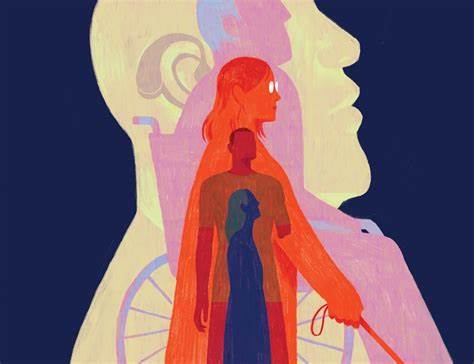Instructor: Reutter | TuTh 2:00 PM- 3:20 PM
Disability studies began as an academic field in the latter 20th century in response to activist challenges to legal and social limitations imposed on people with disabilities. Calling for “nothing about us without us,” protestors in various cities made several demands, leading to the creation of the ADA, various institutional reforms, and the broadening of literary and cultural interest and engagement with disability.
Disability literature interacts with disability studies through the methods of literature and culture studies, while also engaging interdisciplinary contributions. The study of disability literature recognizes activism as a textual as well as physical act, and it also uses literary and cultural studies methods to explore ethics and aesthetics of disability study. In this course, we’ll look at texts in a variety of genres, which may include poetry, novels, memoir, plays, and essays. We’ll examine these works through cultural, historical, feminist, intersectional, or queer/Crip lenses. Topics may include constructions of disability, critiques of “the grotesque” as a literary trope, ableism, disability experience, self-advocacy, stigma, pride, and sex and disability. We may address controversial topics, such as person-first versus disability-first language, the politics of prosthesis, intentional communities, and the study of genre in disability.
Writers we read in this class may include but are not limited to Lennard J. Davis, Rosemarie Garland-Thompson, Tom Shakespeare, Robert McCruer, Chris Bell, Alison Kafer, Audre Lorde, Harriet McBryde Johnson, John Elder Robison, Stephen Kuusisto, Jillian Weise, Flannery O’Connor, Carson McCullers, and others. Students will write papers, engage in face-to-face or on-line discussion, take quizzes and examinations, and present on authors and scholars related to the course.
